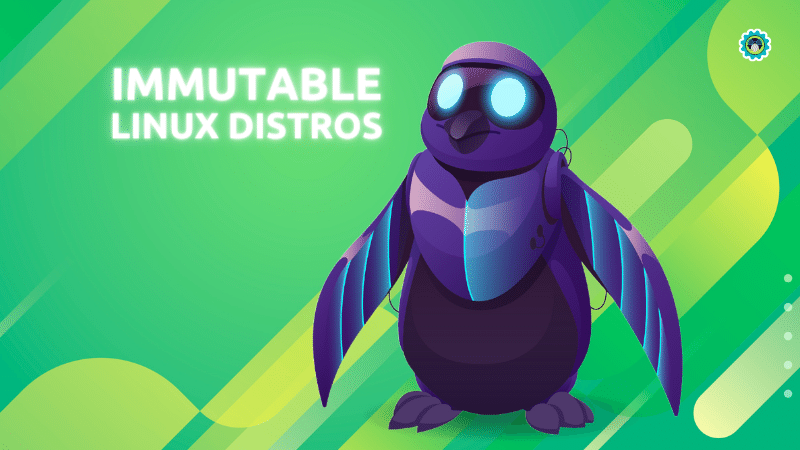
When something is termed "Immutable", it means you cannot change it. For a Linux distribution, it carries the same meaning.
But, what exactly is an immutable distro? How is it different from a standard Linux distribution? Should you consider using them, or are they just a cool concept to have?
In this article, I shall answer all these questions.
What is an Immutable Linux Distro?

An immutable distro is an operating system that cannot be changed and is read-only. You cannot make any changes to the core of the operating system (system files and directories).
Yes, you can add/remove files for storage and perform all the daily activities. And, the data will be stored as usual. However, any changes that require administrator-level topics just won't apply. Any system-level change will be temporary (if that happens) and the change will be lost after a reboot.
Immutable distributions also handle updates in a distinct way which involves an entire operating system being replaced with new components like a new installation instead of just the packages being upgraded.
Often, users confuse themselves that an immutable distro is something entirely unique. But, it is the same Linux distribution, it just differs in how it works/how it allows modification and updates.
How Are They Different From Standard Distros?

For starters, you can easily break a non-immutable distribution with a sudo-level change, and it will stay like, until you fix it or re-install the entire operating system.
With an immutable distro, you cannot break things because you cannot modify anything important that makes the OS work reliably. In other words, it is by design that it will offer you a reliable and stable experience, even better than standard LTS releases.
When it comes to updates, it utilizes an “image-based” technique, where you create another instance of the operating system with newer system components. The entire operating system will be replaced with an updated one, keeping your personal files intact.
This gives you a benefit in terms of stability and also, security. Especially, for deployments in the cloud, embedded systems, or container architectures.
Some benefits of immutable options compared to standard distros include:
- Malicious attackers cannot make permanent changes to the distro. You can just reboot it and have the same system files intact, giving you enhanced security by design.
- Updates are more reliable and safer, making maintenance easy.
- Unintentional changes to the system are not possible as it is read-only
If you think you need these benefits for your deployment (or desktop), you can try out some of the best immutable distributions that we have listed, like Vanilla OS, NixOS and more:

Should You Switch to Immutable Distros?
If you are a desktop user, it depends on your experience with the usual Linux distributions.
For instance, if updates break your OS experience regularly or if you find yourself making unintentional changes that make it unusable, an immutable option should help you.
And, if you are deploying an OS in the cloud where you want scalability, reliability, and security, you cannot go wrong with the immutable distributions tailored for such use-cases.


